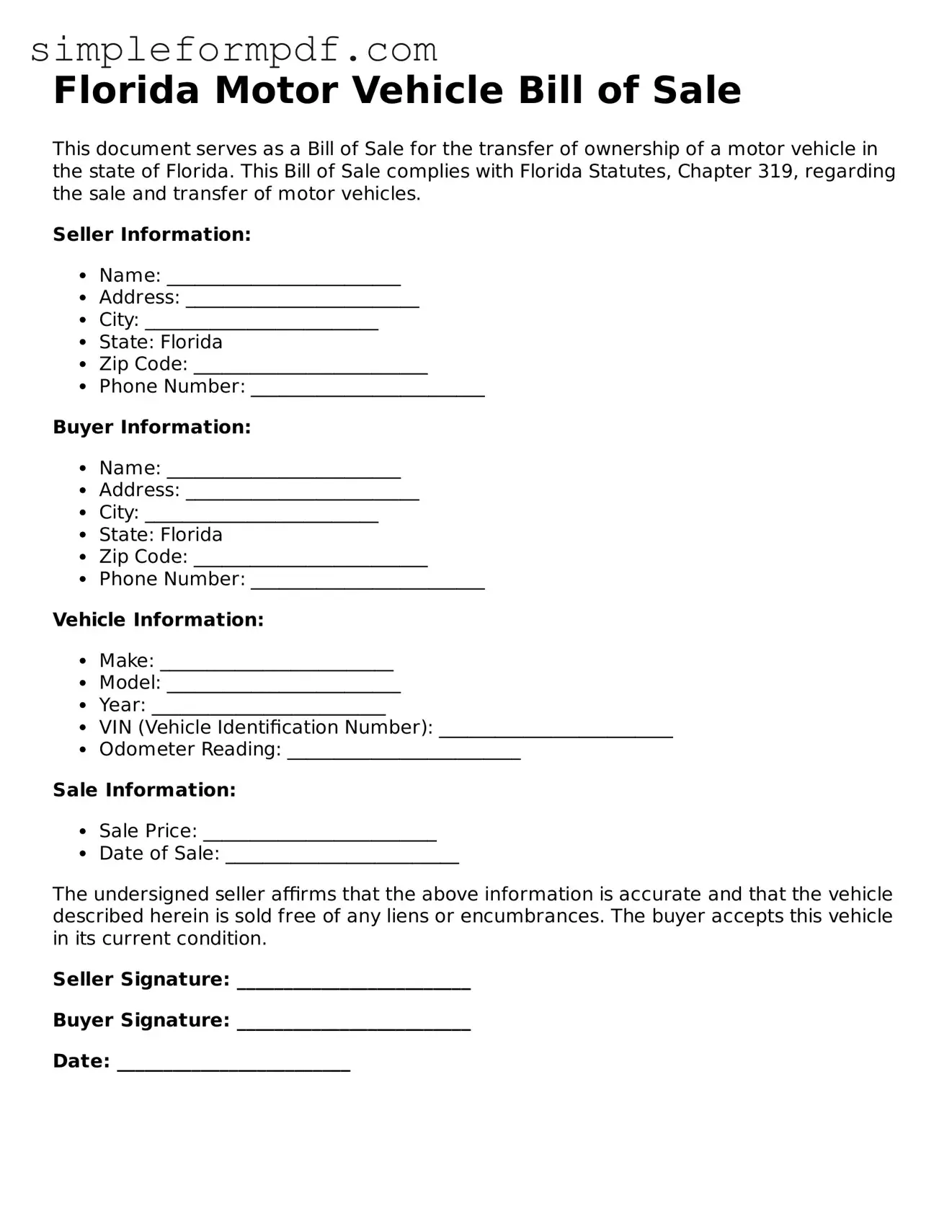Free Motor Vehicle Bill of Sale Form for the State of Florida
The Florida Motor Vehicle Bill of Sale form is a legal document that records the sale of a vehicle between a buyer and a seller. This form serves as proof of the transaction and includes essential details such as the vehicle's identification number, sale price, and the parties involved. If you’re planning to buy or sell a vehicle in Florida, make sure to fill out this form by clicking the button below.
Launch Editor

Free Motor Vehicle Bill of Sale Form for the State of Florida
Launch Editor
Need instant form completion?
Finish Motor Vehicle Bill of Sale online in just a few minutes.
Launch Editor
or
Download PDF
